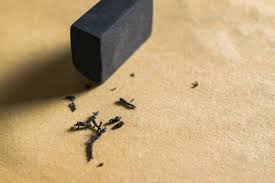Product liability insurance protects firms in the event that they are accused of creating, distributing, or fixing a dangerous product. It is also good and it helps secure your business. This article talks about the cost of JCT product liability insurance and its example. It also talks about the best product liability insurance for small businesses.
Overview
Product liability insurance is more than just a guarantee or warranty for a product. It also shields enterprises from the consequences of products causing bodily harm or other damage to third parties. However, the way a product is created, designed, marketed, or misused can cause harm to consumers.
It is also a protection against financial loss resulting from an insured’s legal liabilities for harm or damage caused by the use of a covered product, or liability incurred by a contractor after a task is done (completed operations cover). A general liability insurance policy will normally include some product liability coverage, but businesses facing higher risks may need to boost their limits or obtain additional coverage.
Claims for bodily harm or property damage are accessible by the product’s purchaser, user, or bystander. The following are examples of bodily harm or damage caused by the product:
- faults in design
- Defective products.
- Instructions, labels, and cautions are all inadequate.
How Does Product Liability Coverage Work?
A product guarantee or warranty is not all that product liability insurance is. It shields companies from the consequences that arise if a product harms or otherwise negatively impacts other parties.
The way a product is created, sold, developed, or used can hurt consumers. Your company can still be responsible for any harm caused by a product, even if it is used improperly.
It’s up to your company to make things right. If your company is sued, product liability insurance may be able to shield you from financial loss. A 20% increase from 2013 brought to 58,496 personal injury/product liability claims in 2014. According to one law firm, the median jury verdict in product liability cases in 2012 was $1,503,339.20, and the average verdict was $3,439,035. Product liability insurance for small firms is becoming even more crucial due to the rise in claims and the high expense of lawsuits.
A product liability lawsuit can be expensive and frustrating to deal with. Product liability insurance pays the court costs that would otherwise be extremely expensive. In addition, the insurance covers business and compensatory damages.
What Does Product Liability Insurance Cover?
Design flaws, manufacturing flaws, warning or use flaws, and strict responsibility are the usual causes of product liability claims. A good product liability insurance policy will protect you against all of the following: product injury lawsuits; injuries caused by your product to bystanders; illnesses brought on by the consumption of food or beverages; illnesses caused by toxins found in your products; property damage brought on by defective products; and even wrongful death brought on by your product.
Why Is Product Liability Insurance Important?
You probably need this policy if you sell, produce, or distribute products. There are few restrictions on who can file a product liability case, and any company in the supply chain could be held accountable if a product causes harm.
Product liability insurance will aid in covering your legal costs, a court verdict, or a settlement if a product is believed to have injured or financially harmed another person.
Sometimes referred to as products-completed operations coverage, The objects you create or sell are referred to as “products.” “Completed operations” refers to finished projects, like a deck or roof that was constructed by your business.
Who Needs Product Liability Insurance?
Product liability insurance can be useful if you sell products to customers or clients or if you have a supply chain. Many industries, whether they are tiny firms or larger corporations, can profit from this coverage, including:
- Manufacturers
- Retailers
- Wholesale & distribution businesses
Any production problem could result in flaws that expose your company to a product liability lawsuit. Because of this, it’s crucial to secure your company with the appropriate insurance.
What Kinds of Companies Require Product Liability Insurance?
Although product liability insurance is not required by law, any company that engages in any of the following product-related activities should consider acquiring it:
- Manufacturing.
- Distributing.
- Wholesaling.
- Importing.
- Retailing.
- Installing.
- Repairing/modifying.
What Is the Process for Obtaining Product Liability Insurance?
If you currently have general liability insurance, you are covered for product liability. A commercial general liability insurance policy covers business owners in the event that one of their goods or finished projects are later accused of causing harm to someone.
However, if your product liability risks are considerable, you should think about purchasing supplementary product liability coverage. Separate coverages, such as product recall insurance, may also be required to protect against other product-related risks.
A professional commercial insurance agent can assist you in finding the right insurance for your company. You may also shop and get a quote online. However, you can contact an insurance provider and speak with a representative.
Product liability insurance is available from a variety of business insurance firms. You can also get estimates from several different insurers to help you compare coverage and pricing. Begin with the following:
If you don’t already have a general liability insurance policy, both The Hartford and Allstate indicate that their plans offer some product liability coverage. Most insurers provide this coverage, but if you’re concerned about product liability concerns, make sure to ensure that your policy provides coverage for products-completed procedures.
If you require additional coverage, such as product recall insurance, look for an insurance firm, such as Travelers, that offers industry-specific packages. These can make it easier to find the insurance coverage that is tailored to your specific need.
Jct Product Liability Insurance
Building contractors, electricians, plumbers, carpenters, architects, and project managers can all get a quote for public product liability insurance from JCT Insurance Expert.
It is critical that your contractor has up-to-date JCT product liability insurance. These risks are covered by public, product, and employer liability insurance plans. Many contractors work as sole proprietors and hire subcontractors; thus, they just carry public liability insurance.
Employers’ JCT liability insurance is required for builders that hire non-family members or use product labor-only subcontractors. However, as part of a public product liability policy, JCT Insurance experts can provide coverage for employer liability insurance.
Product Liability Insurance for Small Businesses
Product liability insurance protects small businesses from claims that products sold, designed, manufactured, or distributed malfunctioned and caused bodily harm or property damage to someone else’s possessions.
If you own a company that designs, manufactures, distributes, or sells products, you may be liable if the product causes harm to others. Without product liability coverage, your company may have to pay for medical expenses, property repairs, legal fees, and other costs incurred due to incidents caused by product flaws.
What Is Covered by Product Liability Insurance?
Legal fees, medical expenditures, and compensatory damages in third-party litigation are all covered under product liability coverage. It addresses issues brought on by your product, such as:
- property damage
- Injury to the body
- Illness
- Unjustified death
The following flaws are of protection under the product liability coverage:
- Design flaw: The product’s design was flawed.
- Manufacturing flaw: The product was manufactured with a defect.
- A flaw in marketing: The product’s marketing made a mistake, such as not providing sufficient directions.
- Inadequate warning: There isn’t enough information provided about how to utilize the product properly.
- Strict responsibility applies: A product causes harm to a customer even if your company is not responsible.
Cost of Product Liability Insurance
The cost of product liability insurance varies substantially depending on the risk of the product. However, the type of product, the quantity of cash, how the product is enticing to consumers, and the safety procedures in place all influence the risk. Fireworks and firearms are even more dangerous than clothing or bedding.
For Insureon customers, the average cost of general liability insurance is $45 per month (about $450 yearly). In contrast to the average cost, the median provides a more accurate indication of what your company is likely to pay because it excludes extremely high and low outliers.
The majority of small businesses (40%) pay between $350 and $650 per year for product liability insurance, while 15% pay less than $250. This data is based on an examination of thousands of insurance policies purchased by Insureon’s small business customers.
The typical cost of product liability insurance for low-risk items is approximately $0.20 per $100 in revenue. If you sell $400,000 in items each year, your cost for product liability insurance is $1,200 (or 0.0020 * $400,000). Your real costs will very certainly be significantly greater or lower depending on the type of product you create, manufacture, or sell, as well as the annual revenue generated by your company. Here are some examples of product liability coverage costs in the low, medium, and high-risk categories, particularly on a $200,000 annual income and a $2 million liability limit:
- $1,300 for a spice retailer or distributor
- $7,600 Health Supplement Manufacturer
- $11,600 for a custom motorcycle designer/builder
Best Product Liability Insurance.
We’ll take a look at the top businesses in the business coverage industry that offer some form of product liability coverage below:
#1. Coverwallet Is the Best App for Comparing Online Insurance Quotes
CoverWallet is business insurance for internet brokers. They collaborate with a number of top commercial insurance carriers, including Hiscox, Liberty Mutual, and Hartford. They can provide consumers with estimates from these businesses to consider.
#2. AIG-American International Group Is the Best Option for Distinct and Separate Product Liability Options
AIG provides a variety of product liability alternatives. It provides a standard product liability plan. Meanwhile, it also provides contaminated product insurance in the event that a product becomes contaminated or is recalled. It also provides RecallResponse, which covers a variety of recall expenditures.
#3. The Hartford Is the Best Option for Umbrella Liability
It’s a little more difficult to get information about product liability coverage from Hartford. It specifically discusses product liability insurance on its page on the various types of liability insurance.
#4. Chubb Is the Best Option for Personalized Claim Management
Chubb is a leader in tailored claim management, using the ESIS ProClaim system. Essentially, it examines your individual scenario to aid in the claims process, which includes spending control, litigation management, and claim intake. Choose this provider if you want a very personalized service even after you buy coverage.
#5. CNA: Top Product Liability Insurance Provider for Manufacturers
CNA is an intriguing alternative because it expressly protects industrial firms. This is the business to contact if you require a product that is specifically accessible to your manufacturing operation. It protects you in the event of a claim based on a faulty component or development you manufactured. The organization would want you to contact an agent in order to begin planning and receiving an estimate.
Product Liability Insurance Example
The following is an example of product liability coverage:
The company: A spice manufacturer that sells and distributes spices.
The problem: An international spice distributor was the subject of a widespread recall after several of their goods had too much peanut protein. Many customers experienced allergic reactions, resulting in lawsuits in multiple jurisdictions.
Companies that import products, especially raw ingredients later supplied to final product makers, incur substantial liabilities if the imported product does not fulfill safety regulations. Due to the unintentional nature of the contamination, the corporation caused serious injuries and illnesses to their customers while failing to include needed labels, warnings, and directions.
In practice, product liability coverage: A variety of things can go wrong during the manufacturing and distribution processes. Product liability coverage protects you against a wide range of unforeseeable events.
In the preceding example, product liability coverage responds directly to manufacturing and labeling errors by providing coverage for consumer injury and disease claims. However, it should be noted that not all product liability coverage assists businesses in recouping the costs of a large-scale recall. As a result, it’s critical to consult with an experienced insurance broker about policy language.
Why Is It Crucial for Small Businesses to Obtain Product Liability Insurance?
If the products your company provides to clients have any kind of flaw, there is a possibility that they could hurt someone or cause damage to their property. Take, as an illustration, the scenario in which a client purchases a power tool that is produced by your company. Because of a flaw in the product, the customer ended up getting hurt, and now they want to sue your company.
How Much Product Liability Insurance Does Your Small Business Need?
What you sell and how many of those things you sell, as well as the volume of sales and the number of parties engaged in production, all have a role in determining how much coverage you should purchase. When there is a greater quantity of production, there is a greater possibility that one of the items may be flawed in some way. This is a good rule of thumb. It’s possible that this will become more of a problem if your small business expands over time.
Even if your part in the process of producing, selling, or distributing the product is relatively minor, you still need to get product liability insurance. Contact an agent as soon as possible to ensure that you are protected.
Is Product Liability Insurance Required?
Product liability insurance, which is frequently included in a general liability insurance policy, is not required by law. Commercial landlords and clients, on the other hand, may need you to obtain general liability insurance in order to meet the requirements of a lease or contract.
If your company produces, manufactures, or supplies a physical product that is sold or given away for free, you should think about getting product liability coverage. Your company could be held legally liable for any injuries or property damage caused by a defective product.
What Is Product Liability Insurance vs. General Liability?
The primary distinction between general liability and professional liability is the sort of risks covered by each. General liability insurance covers personal harm and property damage. Professional liability insurance protects against more abstract risks, such as errors and omissions in the services provided by your company.
Product liability coverage protects your company from claims that a product you manufactured or sold caused bodily harm or property damage to another person’s things. An insurance carrier may offer this coverage as a separate policy, but we include it as part of your general liability insurance.
What Are the Most Typical Sorts of Product Liability Cases?
There are several;
- Automobile Parts.
- Medical Equipment.
- Lawn Mowers.
- Toys for kids.
- Home Improvement Equipment.
- In the past, drugs, including over-the-counter pain treatments, have been recalled due to undeclared side effects or contamination.
Who Needs Product Liability?
Those in need are:
- Bread shops
- Clothes shops
- Florists.
- Eateries
- Shops selling trinkets
- Retailers
- Specialty grocery stores
- Coffee houses
- Pet shops
- Printing and copying businesses
- Software designers
- Web designers/creators
- Sources of raw materials
- Suppliers of equipment
What insurance do I need to sell products?
Most e-commerce companies should carry conventional general liability insurance to cover third-party bodily injury and property damage claims. Product liability insurance can provide particular coverage for claims involving defective or damaged items for online retailers who sell physical goods.
You May Require One Depending on Your Circumstances.
- Error claims are covered under professional liability insurance.
- Insurance for commercial property: Commercial property insurance.
- Liability in general.
- Product responsibility.
- Compensation for employees.
- Transportation coverage (or inland marine insurance).
- Insurance for cyber-security.
- Insurance against business interruption.
Do You Need Insurance to Sell Products Online?
Running an online business exposes you to new dangers. Business insurance, also known as commercial insurance, can protect you from these and other frequent hazards faced by small business owners.
To protect against some of the most prevalent hazards that e-commerce businesses encounter, such as customer injury and property damage, most online stores should obtain general liability insurance as well as product liability insurance.
Conclusion
To avoid paying fines and causing harm to customers, you have to register your business brand under product liability coverage. It is good and it will secure you from expenses including online sellers. This article teaches about “product liability insurance.”
PLI FAQs
Why do you need product liability?
Product liability insurance protects you from the cost of compensating for personal injuries caused by your faulty product, as well as property loss or damage caused by your faulty product. Unforeseeable events, such as product flaws that your quality control system failed to detect.
What is product liability insurance called?
Product liability insurance is frequently included with a general liability policy. This is commonly referred to as product-completed operations coverage. The objects you create or sell are referred to as “products.” The term “completed operations” refers to finished work.
Why does my business need public liability insurance?
Public Liability Insurance (PL) is meant to protect you and your company in the event that a customer or member of the general public holds your company accountable for physical injury or property damage.
Related Articles
- SMALL BUSINESS INSURANCE: Overview, Liability, Requirements, Costs
- TAX LIABILITY: Definition and How It Works
- PERSONAL LIABILITY COVERAGE: Definition, Cover & How Much You Need
- PUBLIC LIABILITY INSURANCE: Meaning, Quotes, Cost & Best UK Practices
- GENERAL LIABILITY INSURANCE: Coverage & Quotes For Your Business






